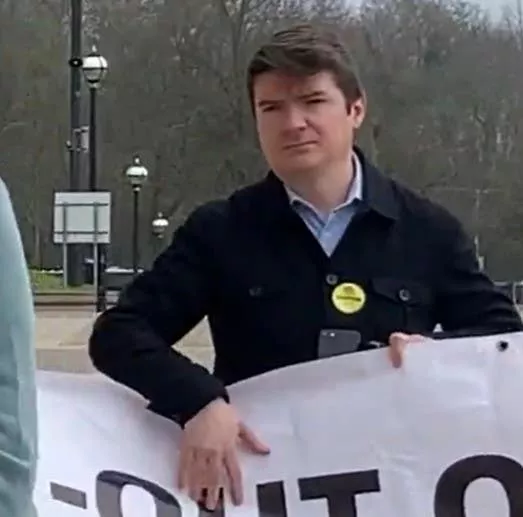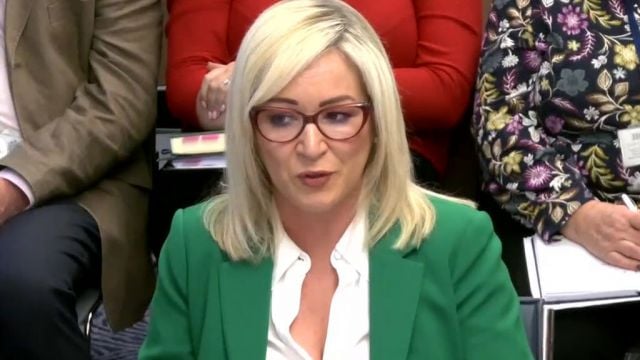A Stormont committee is to seek legal advice on what basis it can invite Northern Ireland’s First Minister Michelle O’Neill back to answer more questions about the Michael McMonagle controversy.
The Executive Office committee said it also needed clarity on whether Ms O’Neill and Sinn Féin colleague and junior minister Aisling Reilly could appear before it without DUP deputy First Minister Emma Little-Pengelly and junior minister Pam Cameron.
The four Executive Office ministers appeared before the scrutiny committee last week, when Ms O’Neill faced questions for the first time on the fallout from her party’s handling of allegations against former press officer McMonagle.

Last month, McMonagle, 42, from Limewood Street, Derry, admitted a series of offences, including attempting to incite a child to engage in sexual activity. He will be sentenced in November.
He was first arrested in August 2021 and Sinn Féin has said it suspended him as soon as it became aware of the police investigation.
His term of employment with Sinn Féin at the Assembly formally ended in July 2022.
McMonagle then went on to get a job with the British Heart Foundation (BHF), which did not know he was under investigation for child sex offences.

Sinn Féin has been under mounting pressure after it emerged that two former party press officers provided references for McMonagle in 2022 for the BHF job.
The press officers quit more than a week ago after Sinn Féin began disciplinary proceedings against them.
Since her committee appearance last week, Ms O’Neill has answered questions in the Northern Ireland Assembly and said she was “deeply sorry” for damage caused to the reputation of the BHF.
Opening the committee meeting, chairwoman Paula Bradshaw asked members for their views on inviting the Executive Office ministers back for further questioning.
Sinn Féin MLA Caral Ni Chuilin said she wanted to see legal advice on this issue.
She said: “You either bring all back or you bring none back, you can’t bring two ministers back.”
DUP MLA Brian Kingston said the story had moved on substantially since Ms O’Neill appeared last week.
He added: “At the meeting last week essentially the First Minister was saying the fault lay with two press officers who have been sacked and there were issues for the British Heart Foundation.
“Since that it has got to the stage where the First Minister has apologised to the British Heart Foundation, accepted the errors her party made.

“That change in position has only come about through scrutiny, scrutiny by this committee, the media, by the Assembly.”
He added: “The First Minister is embroiled in a safeguarding failure and a safeguarding scandal, and we do have to act.”
SDLP MLA Sinead McLaughlin said the primary concern had to be over the safeguarding of children and said she supported bringing all four ministers to committee.
She said: “I feel we have lost a wee bit of our moral duty until we get this resolved.”
TUV MLA Timothy Gaston said there was an onus on the committee to scrutinise and ask questions.
He said: “We need some transparency, there hasn’t been any transparency to date.
“The First Minister’s reputation and that of the Executive Office is in tatters because of that.”
Ms Ni Chuilin said many of the issues raised were more relevant to the Assembly Commission, the body that oversees the running of Parliament Buildings at Stormont.
She said: “I think we need to be very careful about asking the First Minister to come in with the deputy First Minister to ask questions which quite clearly are more related to the commission.”
Independent unionist MLA Claire Sugden said any recall of witnesses needed to be done in line with legal advice.
She said: “My concern is that if we bring them back on issues which we legally can’t then they have every right to say no.
“I think the aim of this committee is to make sure we can get them in front of us and we can only do that on a legal basis.
“We need to be clear about what we can ask them and what we can’t.”
The committee agreed to seek legal advice on whether two or four ministers should be invited to appear as witnesses and the potential remit of what issues they could be questioned on.







